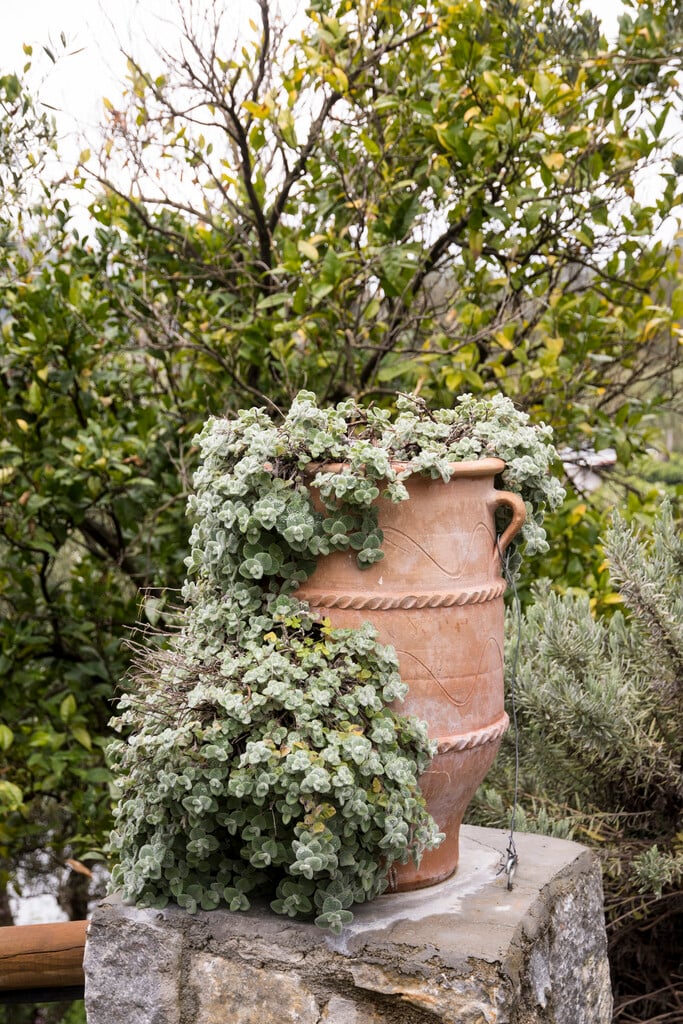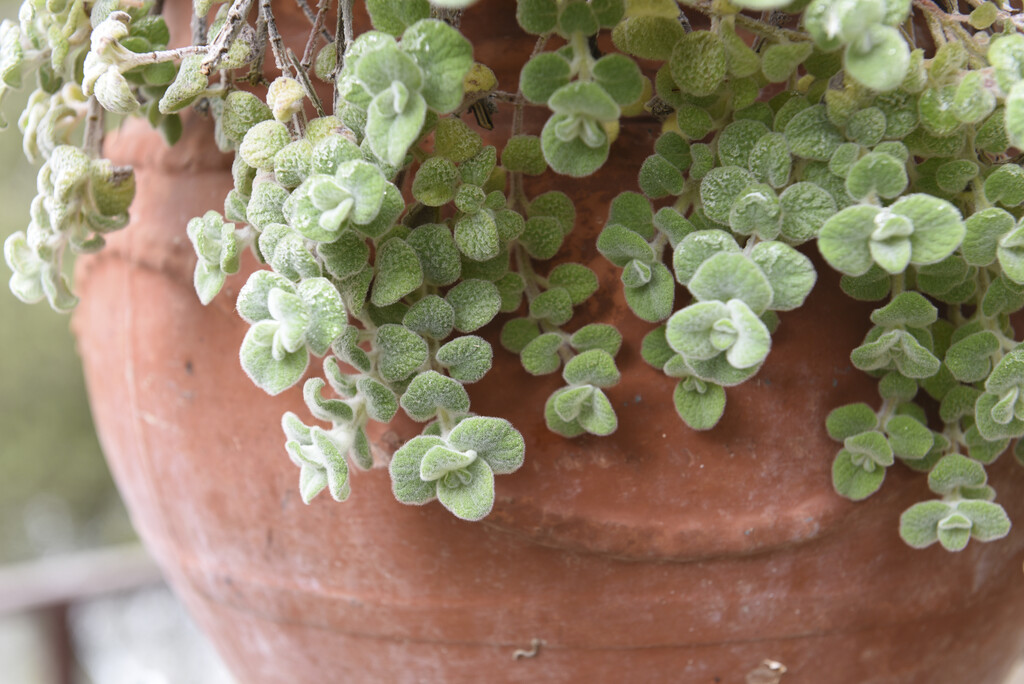Origanum dictamnus
dittany of Crete
A compact, dome forming, evergreen sub-shrub to 15cm tall, with attractive arching stems bearing aromatic, rounded, densely felted, grey-green, leaves occasionally purple-mottled. Dense, nodding whorls of funnel-shaped pink flowers among hop-like purple bracts, appear in summer
Synonyms
Amaracus dictamnusSize
Ultimate height
0.1–0.5 metresTime to ultimate height
2–5 yearsUltimate spread
0.1–0.5 metresGrowing conditions
Moisture
Well–drainedpH
Alkaline, NeutralColour & scent
| Stem | Flower | Foliage | Fruit | |
| Spring | Green Grey Silver | |||
|---|---|---|---|---|
| Summer | Pink Purple | Green Grey Silver | ||
| Autumn | Green Grey Silver | |||
| Winter | Green Grey Silver |
Position
- Full sun
Aspect
North–facing or South–facing or West–facing
Exposure
Exposed or Sheltered Hardiness
H3Botanical details
- Family
- Lamiaceae
- Native to GB / Ireland
- No
- Foliage
- Evergreen
- Habit
- Clump forming, Spreading branched
- Genus
Origanum may be herbaceous perennials or deciduous or evergreen sub-shrubs, with aromatic foliage and spikes of small tubular flowers usually with conspicuous bracts
- Name status
Correct
How to grow
Cultivation
Grow in poor or moderately fertile, alkaline, well-drained soil in full sun with shelter. Dislikes winter wet and may need protection from cold temperatures, suitable for growing in a container in an alpine house. See oregano cultivation for further advice Appears on Oregano & Marjoram trials index - see rhs.org.uk/trials-awards
Propagation
Propagate by seed
Suggested planting locations and garden types
- Cottage and informal garden
- City and courtyard gardens
- Mediterranean climate plants
- Patio and container plants
- Rock garden
- Wildlife gardens
- Coastal
- Conservatory and greenhouse
Pruning
Cut back spent flower stems in early spring
Pests
May be susceptible to aphids, glasshouse red spider mite and leafhoppers
Diseases
Generally disease-free
Love gardening
Sign up to receive regular gardening tips, inspiration, offers and more
View our Privacy Policy
Get involved
The Royal Horticultural Society is the UK’s leading gardening charity. We aim to enrich everyone’s life through plants, and make the UK a greener and more beautiful place.

